- Home
- Margaret Atwood
Selected Poems II (1976-1986) Page 2
Selected Poems II (1976-1986) Read online
Page 2
***
You wonder about her crime. She was condemned to death for stealing clothes from her employer, from the wife of her employer. She wished to make herself more beautiful. This desire in servants was not legal.
***
She uses her voice like a hand, her voice reaches through the wall, stroking and touching. What could she possibly have said that would have convinced him? He was not condemned to death, freedom awaited him. What was the temptation, the one that worked? Perhaps he wanted to live with a woman whose life he had saved, who had seen down into the earth but had nevertheless followed him back up to life. It was his only chance to be a hero, to one person at least, for if he became the hangman the others would despise him. He was in prison for wounding another man, on one finger of the right hand, with a sword. This too is history.
***
My friends, who are both women, tell me their stories, which cannot be believed and which are true. They are horror stories and they have not happened to me, they have not yet happened to me, they have happened to me but we are detached, we watch our unbelief with horror. Such things cannot happen to us, it is afternoon and these things do not happen in the afternoon. The trouble was, she said, I didn't have time to put my glasses on and without them I'm blind as a bat, I couldn't even see who it was. These things happen and we sit at a table and tell stories about them so we can finally believe. This is not fantasy, it is history, there is more than one hangman and because of this some of them are unemployed.
***
He said: the end of walls, the end of ropes, the opening of doors, a field, the wind, a house, the sun, a table, an apple.
She said: nipple, arms, lips, wine, belly, hair, bread, thighs, eyes, eyes.
They both kept their promises.
***
The hangman is not such a bad fellow. Afterwards he goes to the refrigerator and cleans up the leftovers, though he does not wipe up what he accidentally spills. He wants only the simple things: a chair, someone to pull off his shoes, someone to watch him while he talks, with admiration and fear, gratitude if possible, someone in whom to plunge himself for rest and renewal. These things can best be had by marrying a woman who has been condemned to death by other men for wishing to be beautiful. There is a wide choice.
Everyone said he was a fool.
Everyone said she was a clever woman.
They used the word ensnare.
***
What did they say the first time they were alone together in the same room? What did he say when she had removed her veil and he could see that she was not a voice but a body and therefore finite? What did she say when she discovered that she had left one locked room for another? They talked of love, naturally, though that did not keep them busy forever.
***
The fact is there are no stories I can tell my friends that will make them feel better. History cannot be erased, although we can soothe ourselves by speculating about it. At that time there were no female hangmen. Perhaps there have never been any, and thus no man could save his life by marriage. Though a woman could, according to the law.
***
He said: foot, boot, order, city, fist, roads, time, knife.
She said: water, night, willow, rope hair, earth belly, cave, meat, shroud, open, blood.
They both kept their promises.
NOTE: In eighteenth-century Québec the only way for someone under sentence of death to escape hanging was, for a man, to become a hangman, or, for a woman, to marry one. Françoise Laurent, sentenced to hang for stealing, persuaded Jean Corolère, in the next cell, to apply for the vacant post of executioner, and also to marry her.
Four Small Elegies
(1838, 1977)
i
BEAUHARNOIS
The bronze clock brought
with such care over the sea,
which ticked like the fat slow heart
of a cedar, of a grandmother,
melted and its hundred years
of time ran over the ice and froze there.
We are fixed by this frozen clock
at the edge of the winter forest.
Ten below zero.
Shouts in a foreign language
come down blue snow.
The women in their thin nightgowns
disappear wordlessly among the trees.
Here and there a shape,
a limp cloth bundle, a child
who could not keep up
lies sprawled face down in a drift
near the trampled clearing.
No one could give them clothes or shelter,
these were the orders.
We didn't hurt them, the man said,
we didn't touch them.
ii
BEAUHARNOIS, GLENGARRY
Those whose houses were burned
burned houses. What else ever happens
once you start?
While the roofs plunged
into the root-filled cellars,
they chased ducks, chickens, anything
they could catch, clubbed their heads
on rock, spitted them, singed off the feathers
in fires of blazing fences,
ate them in handfuls, charred
and bloody.
Sitting in the snow
in those mended plaids, rubbing their numb feet,
eating soot, still hungry,
they watched the houses die like
sunsets, like their own
houses. Again
those who gave the orders
were already somewhere else,
of course on horseback.
iii
BEAUHARNOIS
Is the man here, they said,
where is he?
She didn't know, though
she called to him as they dragged her
out of the stone house by both arms
and fired the bedding.
He was gone somewhere with the other men,
he was not hanged, he came back later,
they lived in a borrowed shack.
A language is not words only,
it is the stories
that are told in it,
the stories that are never told.
He pumped himself for years
after that into her body
which had no feet
since that night, which had no fingers.
His hatred of the words
that had been done became children.
They did the best they could:
she fed them, he told them
one story only.
iv
DUFFERIN, SIMCOE, GREY
This year we are making
nothing but elegies.
Do what you are good at,
our parents always told us,
make what you know.
This is what we are making,
these songs for the dying.
You have to celebrate something.
The nets rot, the boats rot, the farms
revert to thistle, foreigners
and summer people admire the weeds
and the piles of stones dredged from the fields
by men whose teeth were gone by thirty.
But the elegies are new and yellow,
they are not even made, they grow,
they come out everywhere,
in swamps, at the edges of puddles,
all over the acres
of parked cars, they are mournful
but sweet, like flowered hats
in attics we never knew we had.
We gather them, keep them in vases,
water them while our houses wither.
NOTE: After the failure of the uprising in Lower Canada (now Québec) in 1838, the British army and an assortment of volunteers carried out reprisals against the civilian population around Beauharnois, burning houses and barns and turning the inhabitants out into the snow. No one was allowed to give them shelter and many froze to d
eath. The men were arrested as rebels; those who were not home were presumed to be rebels and their houses were burned.
The volunteers from Glengarry were Scots, most of them in Canada because their houses had also been burned during the Highland Clearances, an aftermath of the British victory at Culloden. Dufferin, Simcoe, and Grey are the names of three counties in Ontario, settled around this period.
Two-Headed Poems
"Joined Head to Head, and still alive"
Advertisement for Siamese Twins,
Canadian National Exhibition, c. 1954
The heads speak sometimes singly, sometimes
together, sometimes alternately within a poem.
Like all Siamese twins, they dream of separation.
i
Well, we felt
we were almost getting somewhere
though how that place would differ
from where we've always been, we
couldn't tell you
and then this happened,
this joke or major quake, a rift
in the earth, now everything
in the place is falling south
into the dark pit left by Cincinnati
after it crumbled.
This rubble is the future,
pieces of bureaucrats, used
bumper stickers, public names
returnable as bottles.
Our fragments made us.
What will happen to the children,
not to mention the words
we've been stockpiling for ten years now,
defining them, freezing them, storing
them in the cellar.
Anyone asked us who we were, we said
just look down there.
So much for the family business.
It was too small anyway
to be, as they say, viable.
But we weren't expecting this,
the death of shoes, fingers
dissolving from our hands,
atrophy of the tongue,
the empty mirror,
the sudden change
from ice to thin air.
ii
Those south of us are lavish
with their syllables. They scatter, we
hoard. Birds
eat their words, we eat
each other's, words, hearts, what's
the difference? In hock
up to our eyebrows, we're still
polite, god knows, to the tourists.
We make tea properly and hold the knife
the right way.
Sneering is good for you
when someone else has cornered
the tree market.
Who was it told us
so indelibly,
those who take risks
have accidents?
iii
We think of you as one
big happy family, sitting around
an old pine table, trading
in-jokes, hospitable to strangers
who come from far enough away.
As for us, we're the neighbors,
we're the folks whose taste
in fences and pink iron lawn flamingoes
you don't admire.
(All neighbors are barbarians,
that goes without saying,
though you too have a trashcan.)
We make too much noise,
you know nothing about us,
you would like us to move away.
Come to our backyard, we say,
friendly and envious,
but you don't come.
Instead you quarrel
among yourselves, discussing
genealogies and the mortgage,
while the smoke from our tireless barbecues
blackens the roses.
iv
The investigator is here,
proclaiming his own necessity.
He has come to clean your heart.
Is it pure white,
or is there blood in it?
Stop this heart!
Cut this word from his mouth.
Cut this mouth.
(Expurgation: purge.
To purge is to clean,
also to kill.)
For so much time, our history
was written in bones only.
Our flag has been silence,
which was mistaken for no flag,
which was mistaken for peace.
v
Is this what we wanted,
this politics, our hearts
flattened and strung out
from the backs of helicopters?
We thought we were talking
about a certain light
through the window of an empty room,
a light beyond the wet black trunks
of trees in this leafless forest
just before spring,
a certain loss.
We wanted to describe the snow,
the snow here, at the corner
of the house and orchard
in a language so precise
and secret it was not even
a code, it was snow,
there could be no translation.
To save this language
we needed echoes,
we needed to push back
the other words, the coarse ones
spreading themselves everywhere
like thighs or starlings.
No forests of discarded
crusts and torn underwear for us.
We needed guards.
Our hearts are flags now,
they wave at the end of each
machine we can stick them on.
Anyone can understand them.
They inspire pride,
they inspire slogans and tunes
you can dance to, they are redder than ever.
vi
Despite us
there is only one universe, the sun
burns itself slowly out no matter
what you say, is that
so? The man
up to his neck in whitehot desert
sand disagrees.
Close your eyes now, see:
red sun, black sun, ordinary
sun, sunshine, sun-
king, sunlight soap, the sun
is an egg, a lemon, a pale eye,
a lion, sun
on the beach, ice on the sun.
Language, like the mouths
that hold and release
it, is wet & living, each
word is wrinkled
with age, swollen
with other words, with blood, smoothed by the numberless
flesh tongues that have passed across it.
Your language hangs around your neck,
a noose, a heavy necklace;
each word is empire,
each word is vampire and mother.
As for the sun, there are as many
suns as there are words for sun;
false or true?
vii
Our leader
is a man of water
with a tinfoil skin.
He has two voices,
therefore two heads, four eyes,
two sets of genitals, eight
arms and legs and forty
toes and fingers.
Our leader is a spider,
he traps words.
They shrivel in his mouth,
he leaves the skins.
Most leaders speak
for themselves, then
for the people.
Who does our leader speak for?
How can you use two languages
and mean what you say in both?
No wonder our leader skuttles
sideways, melts in hot weather,
corrodes in the sea, reflects
light like a mirror,
splits our faces, our wishes,
is bitter.
Our leader is a monster
se
wn from dead soldiers,

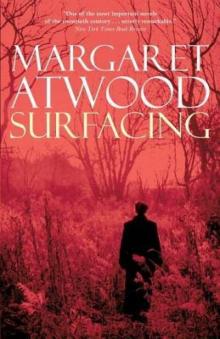 Surfacing
Surfacing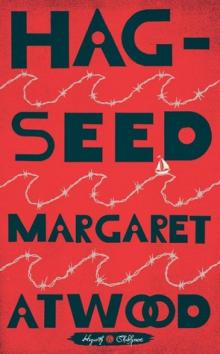 Hag-Seed
Hag-Seed Oryx and Crake
Oryx and Crake The Heart Goes Last
The Heart Goes Last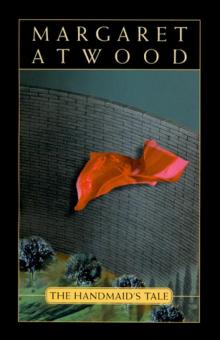 The Handmaid's Tale
The Handmaid's Tale Lady Oracle
Lady Oracle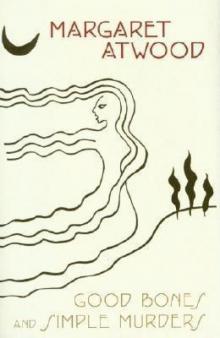 Good Bones and Simple Murders
Good Bones and Simple Murders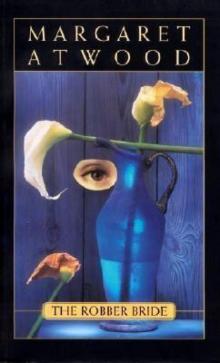 The Robber Bride
The Robber Bride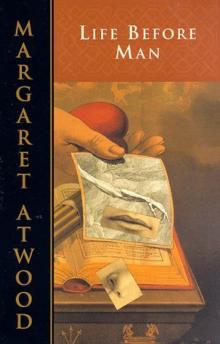 Life Before Man
Life Before Man Alias Grace
Alias Grace The Blind Assassin
The Blind Assassin Cat's Eye
Cat's Eye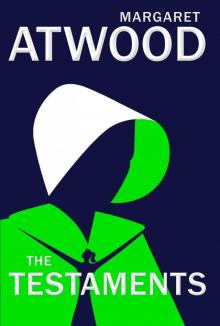 The Testaments
The Testaments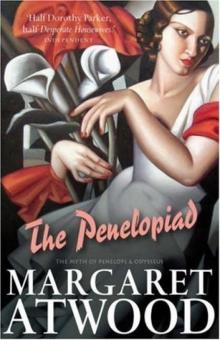 The Penelopiad
The Penelopiad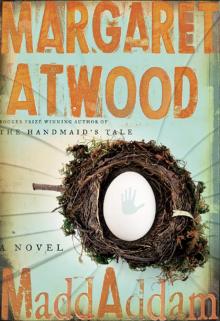 MaddAddam
MaddAddam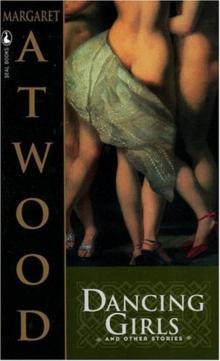 Dancing Girls & Other Stories
Dancing Girls & Other Stories On Writers and Writing
On Writers and Writing Selected Poems II (1976-1986)
Selected Poems II (1976-1986) Wilderness Tips
Wilderness Tips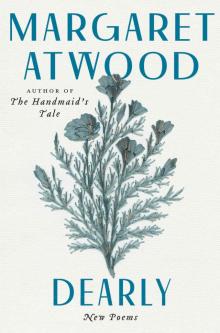 Dearly
Dearly The Tent
The Tent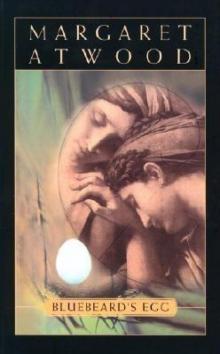 Bluebeard's Egg
Bluebeard's Egg The Edible Woman
The Edible Woman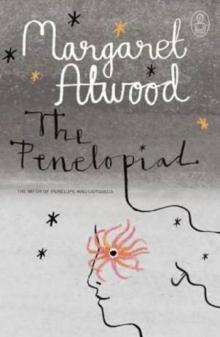 The Penelopiad: The Myth of Penelope and Odysseus
The Penelopiad: The Myth of Penelope and Odysseus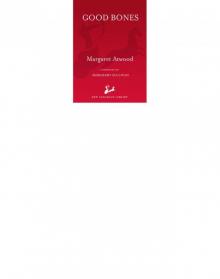 Good Bones
Good Bones I Dream of Zenia with the Bright Red Teeth
I Dream of Zenia with the Bright Red Teeth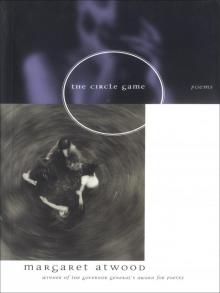 Circle Game
Circle Game Choke Collar: Positron, Episode Two
Choke Collar: Positron, Episode Two Stone Mattress: Nine Tales
Stone Mattress: Nine Tales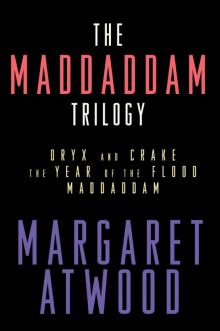 The MaddAddam Trilogy
The MaddAddam Trilogy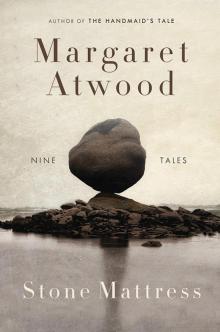 Stone Mattress
Stone Mattress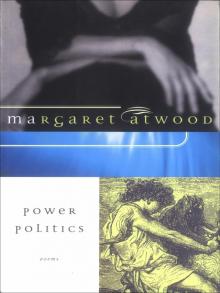 Power Politics
Power Politics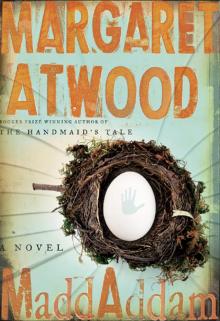 MaddAddam 03 - MaddAddam
MaddAddam 03 - MaddAddam I’m Starved for You (Kindle Single)
I’m Starved for You (Kindle Single) Murder in the Dark
Murder in the Dark In Other Worlds
In Other Worlds Dancing Girls
Dancing Girls Moral Disorder
Moral Disorder